Njal's Saga Read online
Page 5
Death of MordGigja 968
Birth of Mord Valgardsson 970
Gunnar’s marriage to Hallgerd 975
Slaying of Svart 976
Slaying of Kol 977
Slaying of Atli 978
Slaying of Brynjolf the Brawler 979
Slaying of Sigmund 980
The theft at Kirkjubaer 984
Birth of Hoskuld, Godi of Hvitanes 980
Fight at Ranga River 986
Fight at Knafaholar 988
Slaying of Thorgeir Otkelsson 991
Slaying of Gunnar 992
Establishment of the Fifth Court 995
Thangbrand comes to Iceland 997
Conversion to Christianity 1000
Slaying of Hoskuld, Godi of Hvitanes 1010
The burning of Njal 1010
Prosecution for the burning and battle at the Althing 1011
The battle of Clontarf 1014
NJAL’S SAGA
1
There was a man named Mord whose nickname was Gigja. He was the son of Sighvat the Red, and he lived at Voll in the Rangarvellir district. He was a powerful chieftain and strong in pressing lawsuits. He was so learned in the law that no verdicts were considered valid unless he had been involved. He had an only daughter named Unn. She was beautiful, well mannered and gifted, and was thought to be the best match in the Rangarvellir.
Now the saga shifts west to the valleys of Breidafjord. A man named Hoskuld lived there, the son of Dala-Koll.1 His mother was Thorgerd, the daughter of Thorstein the Red, who was the son of Olaf the White, the son of Ingjald, the son of Helgi. Ingjald’s mother was Thora, the daughter of Sigurd Snake-in-the-eye, who was the son of Ragnar Shaggy-breeches. Thorstein the Red’s mother was Unn the Deep-minded; she was the daughter of Ketil Flat-nose, the son of Bjorn Buna. Hoskuld lived at Hoskuldsstadir in the valley of Laxardal.
Hrut was Hoskuld’s brother; he lived at Hrutsstadir. He had the same mother as Hoskuld, but his father was Herjolf Hrut was a good-looking man, big and strong, a good fighter, and even-tempered, a very wise man, harsh towards his enemies but ready with good advice on important matters.
It happened once that Hoskuld held a feast for his friends, and his brother Hrut was there and sat next to him. Hoskuld had a daughter named Hallgerd; she was playing on the floor with some other girls. She was tall and beautiful, with hair as fine as silk and so abundant that it came down to her waist.
Hoskuld called to her, ‘Come here to me.’
She went to him at once, and he took her by the chin and kissed her. Then she went back.
Hoskuld said to Hrut, ‘How do you like this girl? Don’t you find her beautiful?’
Hrut was silent. Hoskuld asked again.
Hrut then answered, ‘The girl is quite beautiful, and many will pay for that, but what I don’t know is how the eyes of a thief have come into our family.’
Hoskuld was angry at this, and for a time the brothers had little to do with each other.
Hallgerd’s brothers were Thorleik, the father of Bolli; Olaf, the father of Kjartan; and Bard.
2
It happened once that these brothers, Hoskuld and Hrut, rode together to the Althing. A great many people were there.
Hoskuld said to Hrut, ‘I wish, brother, that you would improve your way of living and take a wife.’
Hrut said, ‘I’ve thought long about that and been of two minds. But I’ll do as you wish – where should we look?’
Hoskuld said, ‘There are many chieftains here at the Thing, and a good selection of brides, but I have one in mind for you. There’s a woman named Unn, the daughter of Mord Gigja, a very wise man. He’s here at the Althing, and his daughter too, and you can see her now if you wish.’
The next day, when men were going to the Law Council, the brothers saw some well-dressed women outside the Rangarvellir booth. Hoskuld said to Hrut: ‘There’s Unn, the woman I told you about. How do you like her?’
‘Well enough,’ he said, ‘but I don’t know whether we’re meant to be happy together.’
They continued on to the Law Council. Mord Gigja was explaining legal matters, as usual, and then went to his booth. Hoskuld and Hrut rose and went to Mord’s booth and entered it. Mord was seated at the far end. They greeted him. He rose to receive them and gave Hoskuld his hand. Hoskuld sat down next to him, and Hrut sat down beside Hoskuld.
They discussed many things, and Hoskuld came around to saying, ‘I want to propose an agreement between us: Hrut wants to make a marriage agreement for your daughter and to become your son-in-law, and I will not withhold my support.’
Mord answered, ‘I know that you are a great chieftain, but I know nothing about your brother.’
Hoskuld said, ‘He’s a better man than I am.’
Mord said, ‘You will have to come up with a large sum for him, since she will inherit everything I have.’
‘You won’t have to wait long for what I propose,’ said Hoskuld: ‘he shall have Kambsnes and Hrutsstadir and everything as far as Thrandargil. He also owns a trading ship, now at sea.’
Hrut then said to Mord, ‘Keep in mind that it is out of affection that my brother makes so much of me. But if you’re willing to consider this matter, I would like you to name the terms.’
Mord answered, ‘I’ve already thought it over. She will get sixty hundreds,.1 to which you must add half, and if you have heirs you are to share the property equally.’
Hrut said, ‘I agree to these terms. Let’s find witnesses.’
They rose and shook hands, and Mord betrothed his daughter Unn to Hrut. The wedding was set for two weeks after midsummer, at Mord’s farm.
Both parties then rode home from the Thing. Hoskuld and Hrut rode west by way of Hallbjarnarvordur (Hallbjorn’s cairns). Thjostolf, the son of Bjorn Gold-bearer from Reykjadal, rode out to meet them and told them that Hrut’s ship had come to the Hvita river and on it was Ozur, Hrut’s father’s brother, and he wanted Hrut to come to him as soon as possible. When Hrut heard this, he asked Hoskuld to go with him to the ship. Hoskuld did, and they both went, and when they came to the ship Hrut gave his uncle a warm and cheerful welcome, and Ozur offered them a drink in his booth. The gear was taken from their horses, and they went in and drank.
Hrut said to Ozur, ‘Come west now, uncle, and spend the winter with me.’
‘That is not to be,’ he said, ‘for I have to tell you of the death of your brother Eyvind; he willed his property to you at the Gula Thing, and your enemies will seize it if you don’t come.’
‘What am I to do now, brother?’ said Hrut. ‘Things are becoming difficult, for I have just made arrangements for my wedding.’
Hoskuld said, ‘Ride south and visit Mord, and ask him to change the terms so that his daughter is pledged to you for three years. I will ride home and bring your wares to the ship.’
Hrut said, ‘I want you first to take flour and timber and whatever else you want from this cargo.’
He gathered his horses and rode south, and Hoskuld rode west to his home.
Hrut went east to the Rangarvellir, to Mord, and had a good welcome there. He told Mord what had happened and asked for advice.
Mord said, ‘How much wealth is at stake?’
Hrut said it was two hundred marks if he got it all.2
Mord said, ‘That is a great deal, compared to what I will leave her. You must certainly go, if that’s what you wish.’
Then they changed the terms of their agreement, and Unn was to stay pledged to him for three years.
Hrut rode to his ship and stayed with it during the summer until it was ready to sail. Hoskuld brought all of Hrut’s wares to the ship. Hrut turned over to Hoskuld the care of his property in Iceland while he was abroad, and Hoskuld rode back to his farm.
Shortly after, a good wind came up and they sailed away. They were at sea for three weeks and then arrived at the Hern Islands,3 and from there they sailed east to Vik (Oslo fjord).
3
Harald Grey-clo
ak was then ruling over Norway. He was the son of Eirik Blood-axe, the son of Harald Fair-hair. His mother was Gunnhild, the daughter of Ozur Toti. Harald and his mother had their seat at Konungahella, in the east.1
A report came to Vik of the arrival of a ship from the west. As soon as Gunnhild heard it, she asked what Icelanders were on board; she was told that one of them was Hrut, the nephew of Ozur.
She said, ‘I see it plainly: he’s come to claim his inheritance – but a man named Soti has taken it into his keeping.’
Then she called for her servant, whose name was Ogmund: ‘I’m sending you to Vik to meet Ozur and Hrut. Tell them that I invite them both to spend the winter with me and that I want to be their friend. If Hrut listens to my advice I will look after his property claim, as well as anything else he may undertake. I’ll also put in a good word for him with the king.’
He then went and found them, and when they learned that he was Gunnhild’s servant they welcomed him. He gave them the message in private. Then the two of them discussed between themselves what to do, and Ozur said to Hrut, ‘It’s clear to me, kinsman, that we have already taken our decision, for I know Gunnhild: if we don’t go to her she will drive us from the land and grab all our possessions. But if we go to her she will show us the honour she has promised.’
Ogmund returned, and when he came to Gunnhild he gave his report and said that they would come.
Gunnhild said, ‘I expected that, since Hrut is called a clever and capable man. Now watch for when they get here, and let me know.’
Hrut and Ozur travelled east to Konungahella, and when they arrived their kinsmen and friends came out and welcomed them warmly. They asked whether the king was in town, and were told that he was. Soon after that they met Ogmund; he gave them Gunnhild’s greetings and added that for fear of gossip she would not invite them to come to her until they had met the king. ‘It mustn’t seem that I’m lavishing favours on them,’ she had said, ‘and yet I will help him as I see fit. Hrut is to speak boldly to the king and ask to be one of his followers.’
‘And here are some noble robes,’ Ogmund went on, ‘which she has sent for you to wear when you come before the king.’
Then he returned.
The next day Hrut said, ‘Let’s go to the king.’
‘Very well,’ said Ozur.
They went twelve together, all kinsmen and friends, and entered the hall while the king was at drink. Hrut went ahead of the others and greeted the king. The king took a close look at this man, who was well dressed, and asked his name; Hrut gave it.
‘Are you an Icelander?’ the king said.
He said he was.
‘What prompted you to come to us?’
‘The wish to see your magnificence, my lord – and also because I have a large inheritance case in this realm, and I will need your help if I’m to have my just share.’
The king said, ‘All men in this land have my promise of lawful procedure. Do you have any other purpose in visiting us?’
‘My lord,’ said Hrut, ‘I beg to be taken into your bodyguard as one of your followers.’
The king made no answer.
Gunnhild spoke: ‘It seems to me that this man is offering you great honour, for if there were many like him in your bodyguard it would be very well manned – so it seems to me.’
‘Is he a clever man?’ said the king.
‘Both clever and ambitious,’ she said.
‘It seems that my mother wants you to have the position you are asking for. But out of respect for our royal dignity and the customs of this land, you must come again after half a month. Then you shall become my follower. In the meantime let my mother look after your needs – and then come back to me.’
Gunnhild spoke to Ogmund: ‘Take them to my house and give them a good feast.’
Ogmund went out with them and led them to a hall built of stone. It was hung with beautiful tapestries, and there Gunnhild had her throne.
Ogmund spoke: ‘Now you’ll see that what I told you about Gunnhild is true. That’s her throne – sit in it, and you’ll be allowed to hold it even after she arrives.’
He then treated them to a feast. They had only been seated a short time before Gunnhild arrived. Hrut was all ready to jump up and greet her.
‘Remain seated,’ she said. ‘You shall always have this seat, as long as you are my guest’
She sat down beside him, and they drank together. That evening she said, ‘You shall lie with me tonight in the upper room, just the two of us.’
‘That’s for you to decide,’ he said.
Then they went to bed; she bolted the door and they slept there that night. In the morning they went down to drink together, and for a full two weeks they slept in the upper room, just the two of them.
Gunnhild spoke to the men she had there: ‘You have nothing to lose but your lives if you tell anyone about me and Hrut.’
Hrut gave her a hundred ells of woven cloth and twelve homespun cloaks, and she thanked him for the gift. Hrut left, after he had kissed her and thanked her. She wished him well.
The next day he went before the king with thirty men and greeted him.
The king spoke: ‘Now, Hrut, you will be wanting me to keep my promise to you.’
Hrut was then made his follower.
Hrut said,‘Where shall I sit?’
‘My mother shall decide,’ said the king.
She gave him a prominent seat, and he stayed with the king over the winter, well respected.
4
In the spring Hrut heard a report about Soti, that he had gone south to Denmark with the inheritance. Hrut went to Gunnhild and told her of Soti’s movements.
She spoke: ‘I’ll give you two longships, with crews, and also a very strong man, Ulf the Unwashed, the leader of our “guests”.1 But you must go and see the king before you leave.’
Hrut did so, and when he came before the king he told him of Soti’s movements and said that he intended to pursue him.
The king spoke: ‘What help has my mother given you?’
‘Two longships and Ulf the Unwashed in charge of the men,’ said Hrut.
‘You’ve been well treated,’ said the king. ‘Now I want to give you another two ships – you’ll surely need all this strength.’
Then he accompanied Hrut to his ship and said, ‘May you fare well.’
Hrut sailed south with his men.
5
There was a man named Atli, the son of Earl Arnvid of Gotland. He was a great warrior and had his base in Lake Malaren, with a fleet of eight ships. His father had withheld paying tribute to Hakon, foster-son of King Athelstan,1 and then fled with his son from Jamtland to Gotland.
Atli sailed his fleet from Lake Malaren through Stokkssund and then south to Denmark, and there he lay in Oresund. He had been outlawed by both the Danish and the Swedish kings on account of the plunderings and killings he had committed in their two realms.
Hrut sailed south towards Oresund, and when he entered the sound he saw a number of ships there.
Ulf said, ‘What’s to be done now, Icelander?’
‘Keep on course,’ said Hrut. ‘Nothing ventured, nothing gained. Ozur and I will lead with our ship, and you bring yours where you please.’
‘Seldom have I used others as a shield for me,’ said Ulf.
He positioned his ship alongside Hrut’s, and in this way they advanced into the sound.
Those who were in the sound saw that ships were coming at them, and they told Atli. He answered, ‘Then we have a good opportunity to earn some booty. Have the men take away the coverings and get all the ships ready for action, quickly. My ship will be in the centre of our fleet.’
The ships advanced, and when they were within call of each other Atli stood up and spoke: ‘You’re not very cautious. Didn’t you notice there were warships here in the sound? What’s the name of your leader?’
Hrut gave his name.
‘Whose man are you?’ said Atli.
‘A foll
ower of King Harald Grey-cloak,’ said Hrut.
Atli said, ‘It’s been a long time since my father and I were in favour with your Norwegian kings.’
‘That’s your misfortune,’ said Hrut.
‘Our meeting will be such,’ said Atli, ‘that you won’t live to tell about it,’ and he gripped his spear and threw it towards Hrut’s ship. The man in its way was killed.
The battle got under way, but boarding Hrut’s ships proved difficult. Ulf fought boldly with sword and with spear. Asolf was the name of Atli’s prow-man. He leaped onto Hrut’s ship and killed four men before Hrut was aware of him, but then Hrut turned to face him. When they came together, Asolf thrust his spear through Hrut’s shield, but Hrut struck back with his sword and that was a killing blow.
Ulf the Unwashed saw this and said, ‘You strike a hard blow, Hrut – you owe a lot to Gunnhild.’
‘I have the sense,’ said Hrut, ‘that you speak with a doomed mouth.’
Atli noticed an unprotected spot on Ulf and hurled his spear straight through him.
Then came some fierce fighting. Atli leaped on board the ship and cleared his way forward. Ozur turned and thrust at him with his spear, but fell backwards when another man thrust at him. Hrut then turned to meet Atli, who swung quickly at Hrut’s shield and split it all the way down. Atli was then struck on his hand by a stone, and his sword fell. Hrut picked up the sword and cut off his leg; then he struck him his death wound.
Hrut and his men seized much booty and took the two best ships, and they stayed there for a short while.
Soti and his men sailed past them and back to Norway and came to land at Limgard. Soti went ashore and met Ogmund, Gunnhild’s servant.
Ogmund recognized him at once and asked, ‘How long are you planning to stay here?’
‘Three nights,’ said Soti.
‘Where will you go then?’ said Ogmund.
‘West, to England,’ said Soti, ‘and I’ll never return to Norway as long as this is Gunnhild’s realm.’
Ogmund left him and went to Gunnhild – she was at a feast a little way off, with her son Gudrod. Ogmund told her of Soti’s plans, and she told Gudrod to kill him. Gudrod set off at once and caught Soti by surprise and had him brought ashore and hanged. He took the money and brought it to his mother. She had men take it all to Konungahella, and then went there herself.

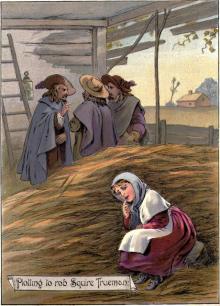 Goody Two-Shoes
Goody Two-Shoes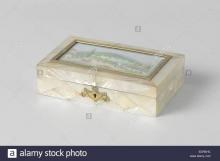 The Pearl Box
The Pearl Box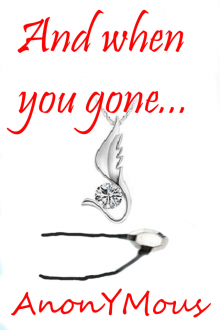 And when you gone...
And when you gone... Stranger At The Other Corner
Stranger At The Other Corner My Young Days
My Young Days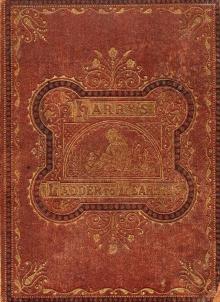 Harry's Ladder to Learning
Harry's Ladder to Learning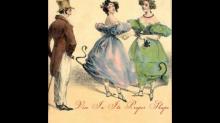 Vice in its Proper Shape
Vice in its Proper Shape_preview.jpg) Promise (the curse)
Promise (the curse)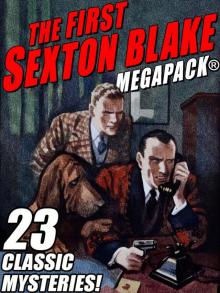 The First Sexton Blake
The First Sexton Blake Golden Moments
Golden Moments Hildebrand; or, The Days of Queen Elizabeth, An Historic Romance, Vol. 2 of 3
Hildebrand; or, The Days of Queen Elizabeth, An Historic Romance, Vol. 2 of 3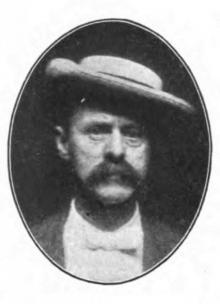 The Ice Queen
The Ice Queen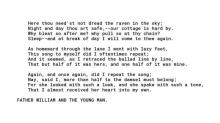 Phebe, the Blackberry Girl
Phebe, the Blackberry Girl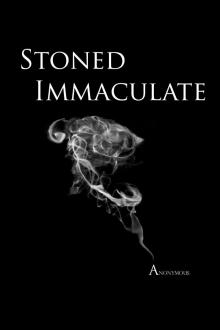 Stoned Immaculate
Stoned Immaculate Hildebrand; or, The Days of Queen Elizabeth, An Historic Romance, Vol. 3 of 3
Hildebrand; or, The Days of Queen Elizabeth, An Historic Romance, Vol. 3 of 3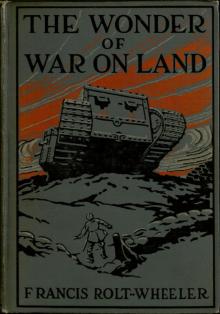 The Wonder of War on Land
The Wonder of War on Land Breaking Bailey
Breaking Bailey The Little Girl Who Was Taught by Experience
The Little Girl Who Was Taught by Experience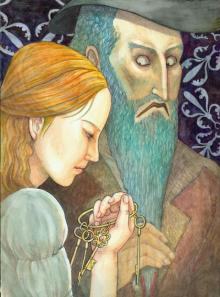 The Popular Story of Blue Beard
The Popular Story of Blue Beard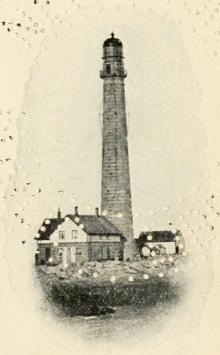 The Life Savers: A story of the United States life-saving service
The Life Savers: A story of the United States life-saving service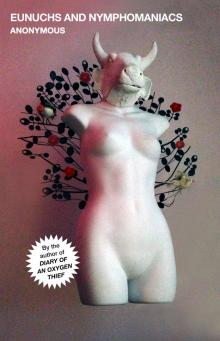 Eunuchs and Nymphomaniacs
Eunuchs and Nymphomaniacs Hildebrand; or, The Days of Queen Elizabeth, An Historic Romance, Vol. 1 of 3
Hildebrand; or, The Days of Queen Elizabeth, An Historic Romance, Vol. 1 of 3 Kitty's Picnic, and Other Stories
Kitty's Picnic, and Other Stories Two Yellow-Birds
Two Yellow-Birds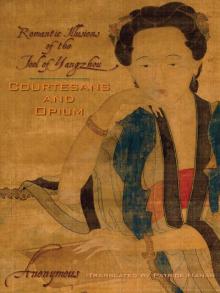 Courtesans and Opium
Courtesans and Opium The Emigrant's Lost Son; or, Life Alone in the Forest
The Emigrant's Lost Son; or, Life Alone in the Forest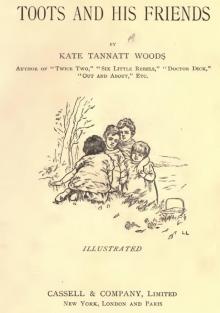 Toots and His Friends
Toots and His Friends Fast Nine; or, A Challenge from Fairfield
Fast Nine; or, A Challenge from Fairfield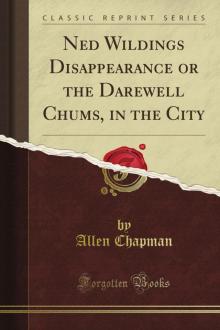 Ned Wilding's Disappearance; or, The Darewell Chums in the City
Ned Wilding's Disappearance; or, The Darewell Chums in the City A Picture-book of Merry Tales
A Picture-book of Merry Tales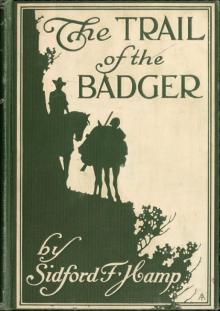 The Trail of The Badger: A Story of the Colorado Border Thirty Years Ago
The Trail of The Badger: A Story of the Colorado Border Thirty Years Ago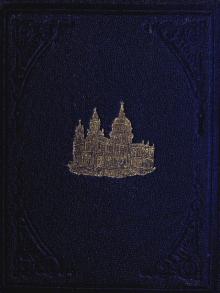 Peter Parley's Visit to London, During the Coronation of Queen Victoria
Peter Parley's Visit to London, During the Coronation of Queen Victoria The Rainbow, After the Thunder-Storm
The Rainbow, After the Thunder-Storm Arthur Hamilton, and His Dog
Arthur Hamilton, and His Dog The Story of the White-Rock Cove
The Story of the White-Rock Cove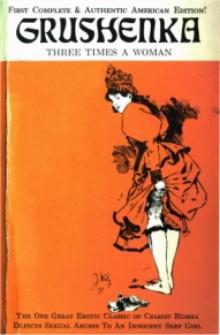 Grushenka. Three Times a Woman
Grushenka. Three Times a Woman Adventures of a Squirrel, Supposed to be Related by Himself
Adventures of a Squirrel, Supposed to be Related by Himself Falling in Love...Again
Falling in Love...Again The Colossal Camera Calamity
The Colossal Camera Calamity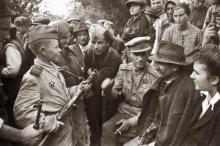 Child of the Regiment
Child of the Regiment Elimination Night
Elimination Night The Kingfisher Secret
The Kingfisher Secret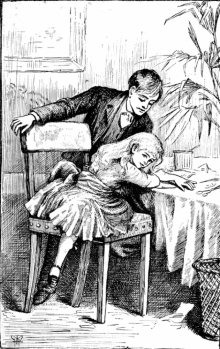 Left to Ourselves; or, John Headley's Promise.
Left to Ourselves; or, John Headley's Promise. The Island of Gold: A Sailor's Yarn
The Island of Gold: A Sailor's Yarn Adventures of Bobby Orde
Adventures of Bobby Orde Twain, Mark: Selected Obituaries
Twain, Mark: Selected Obituaries When Love Goes Bad
When Love Goes Bad The Incest Diary
The Incest Diary Calling Maggie May
Calling Maggie May The Infidelity Diaries
The Infidelity Diaries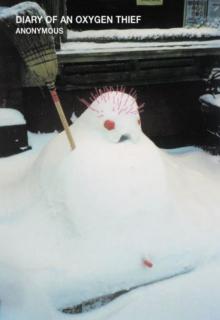 Diary of an Oxygen Thief (The Oxygen Thief Diaries)
Diary of an Oxygen Thief (The Oxygen Thief Diaries) ARABELLA
ARABELLA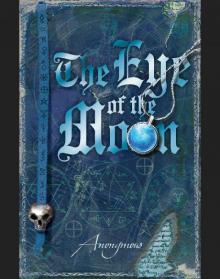 The Eye of the Moon
The Eye of the Moon Dara
Dara THE ALTAR OF VENUS: The Making of a Victorian Rake
THE ALTAR OF VENUS: The Making of a Victorian Rake The Book of Death
The Book of Death The Book of David
The Book of David The Devil's Graveyard
The Devil's Graveyard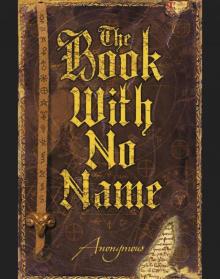 The Book With No Name
The Book With No Name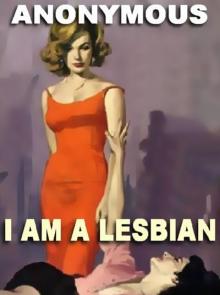 I Am A Lesbian
I Am A Lesbian Njal's Saga
Njal's Saga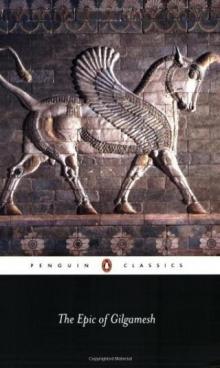 The Epic of Gilgamesh
The Epic of Gilgamesh Darling
Darling Tal, a conversation with an alien
Tal, a conversation with an alien Go Ask Alice
Go Ask Alice Aphrodizzia
Aphrodizzia The Campus Trilogy
The Campus Trilogy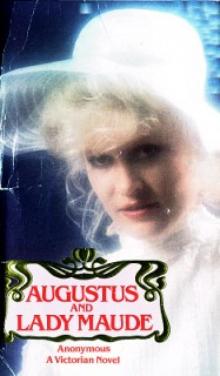 Augustus and Lady Maude
Augustus and Lady Maude Lucy in the Sky
Lucy in the Sky Sight Unseen
Sight Unseen Pleasures and Follies
Pleasures and Follies The Red Mohawk
The Red Mohawk A Fucked Up Life in Books
A Fucked Up Life in Books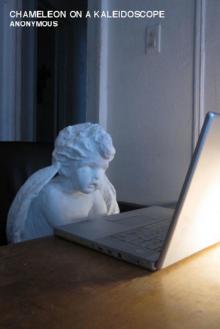 Chameleon On a Kaleidoscope (The Oxygen Thief Diaries)
Chameleon On a Kaleidoscope (The Oxygen Thief Diaries) Astrid Cane
Astrid Cane BEATRICE
BEATRICE The Song of the Cid
The Song of the Cid